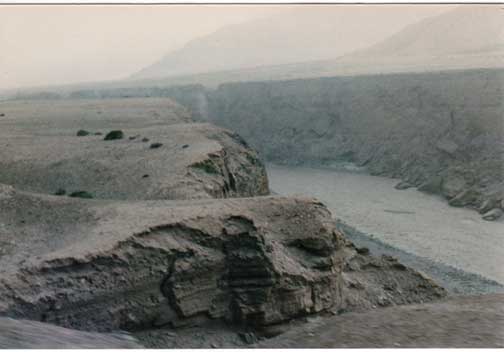
By Bill Savadove
GOLMUD, China, Aug 1 (Reuters) - Rejected by the World Bank and scorned by foreign investors, China's Qinghai province will go it alone on a $338 million fertiliser plant intended to be the showcase of a push to develop lagging western regions.
Local officials see white gold in the waters of the Chaerhan Salt Lake near Golmud which will yield the raw material to produce one million tonnes of potash fertiliser annually.
Foreign investors, however, see a white elephant.
The World Bank turned down the project as unprofitable in the 1980s after builder Qinghai Salt Lake Industry Group Co requested a loan, company officials said.
Israel's Dead Sea Works Ltd has also withdrawn from a $486 million joint venture project announced in 1998 to build a plant producing 850,000 tonnes of potash annually, they said.
Largely ignored by foreign investors, China has settled on a combination of funding from the state and its booming domestic stock and bond markets for many projects in western regions.
Foreign companies cite a host of problems with operating in western China -- uncertain returns, bad transport, poorly skilled workers and conservative local officials.
Controversy surrounding projects planned for areas populated by ethnic minorities such as Tibetans and Muslim Uighurs has also caused foreign firms to shy away from western investment.
Qinghai attracted just $295 million in foreign investment over the last five years. In comparison, China as a whole used nearly $290 billion in foreign funds during the period.
"We welcome foreign investment," said Li Xiaosong, deputy general manager of Qinghai Salt Lake. "But foreign investors and the World Bank thought this project would be unprofitable."
STOCKS AND BONDS
Instead, Qinghai Salt Lake will raise some of the funds with a $48 million to $60 million share issue by its domestically listed subsidiary. The rest will come from the parent firm and the government.
Qinghai Salt Lake officials say they are willing to take the risk as China's potash production falls short of demand, causing heavy reliance on imports.
China produced 1.25 million tonnes of potash fertiliser last year against demand of 5.07 million tonnes. The State Economic and Trade Commission forecasts annual demand will reach 7.0 million tonnes in 2005.
Other projects are following a similar funding route.
A $2.4 billion, 1,140 km (710 mile) railway line to Tibet will be fully state funded, railway officials said. The Ministry of Railways is a frequent issuer of domestic bonds.
"The money is state investment. The equipment and technology are basically our own," said Zhao Xiyu, director of engineering for the project.
Oil giant PetroChina Co said in June it was planning China's biggest domestic share issue ever to raise funds for a $14.5 billion west-east natural gas pipeline stretching 4,200 km (2,600 miles) from the Xinjiang region to Shanghai city.
PetroChina will complete a separate $300 million pipeline from the region of Qinghai to Gansu province's Lanzhou city in October this year.
That project raised a storm of protest from rights groups against world oil giant BP Amoco, which has a 2.2 percent stake in overseas-listed PetroChina.
The World Bank faced similar opposition in 1999 to a proposed $160 million loan to resettle 58,000 people -- among them Tibetans and other ethnic minority people -- from the eastern part of Qinghai to Dulan county in the west.
China decided to do the project on its own and was now preparing to move an initial group of 20,000 people, Qinghai officials said.
CLIMATE OF CONCERN
"We've managed to create a climate of concern about these sort of projects, which highlighted the problems of investment in Tibet," said Alison Reynolds, director of the London-based Free Tibet Campaign human rights group.
"The reason they want to fund these things on their own is that they recognise the sensitivity of it."
Still, multilateral lending agencies, such as the World Bank and the Asian Development Bank, say they will continue to look for viable projects in western China.
The World Bank says it will put more than half its annual lending of $1.0 billion to $1.5 billion in China into western regions. The ADB will also direct around half of total annual lending to China, which is $1.0 billion, into the west.
Qinghai -- which is trying to live down its past as China's gulag when the government sent thousands to its labour camps from the 1950s to 1970s -- hopes more foreign investors will come.
"Transport is not very convenient. But Qinghai's preferential policies for foreign investors are better than other provinces," said Qinghai vice governor Bai Ma.
"Qinghai is like virgin land waiting to be developed."